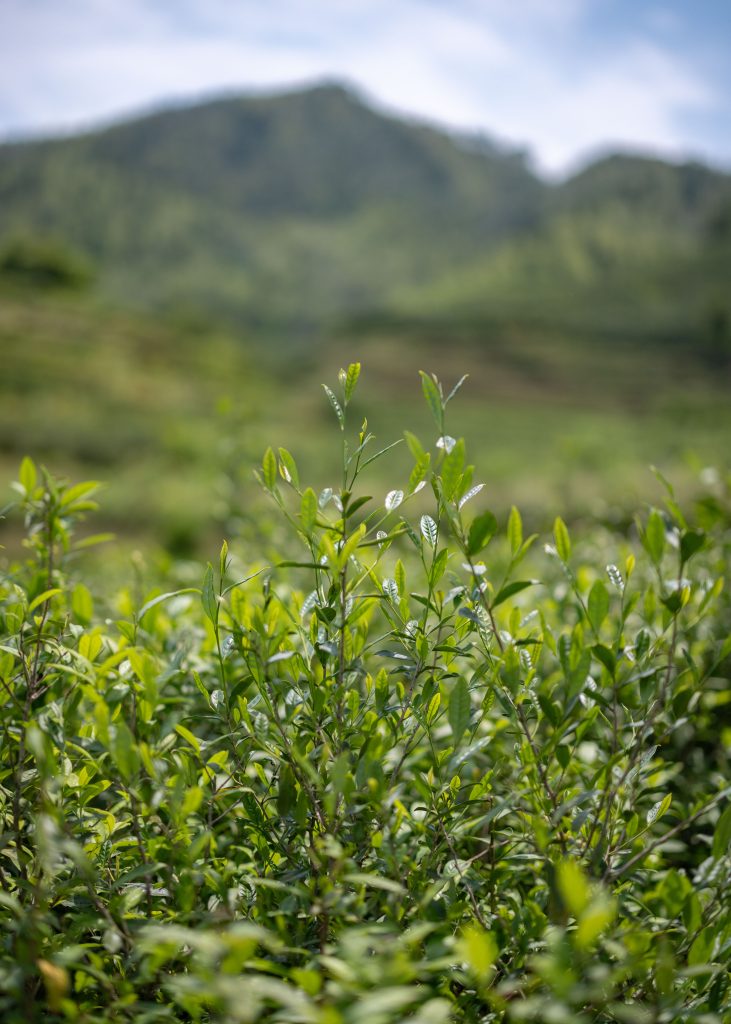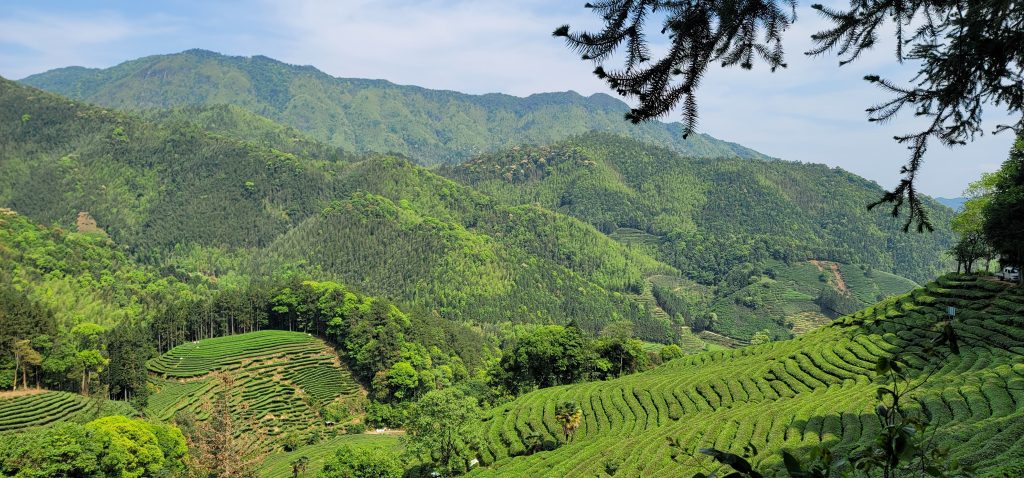$18.00 – $50.00
Hearty, smooth mouthfeel, tall expansive woody flavor profile, succinct and demure aromatics, this light-medium roast tea ecologically grown and produced in Wusandi is a lovely unconventional take on Rougui and we love it that way.
This one isn't produced with a heavy hand, dropping a bouquet bomb of aromatics to the detriment its other aspects. Produced by Mr. Wu in Wusandi who specializes as a Shui Xian producer, it's no wonder we find his unorthodox delivery of Rougui to be a reprieve from the biting acrid follow through that most popularized matou rou "horse meat" styles have traded in for high upfront fragrance.
香不过肉桂,醇厚不过水仙 “As aromatic as rougui, as mellow/simple a soup as shui xian” goes the oft-cited saying, and such marketing slogans tend to have a reverse-engineering effect on the production culture so that its prophecy fulfills itself. These two idyllic rock tea styles are complementary opposites, and as such have found themselves as the ingredients of most conventional rock oolongs sold under the name Da Hong Pao; a blend rather than from actual Da Hong Pao cultivar bushes.
Rougui was already the most planted cultivar in the Wuyi Mountains before rock oolong's surge in popularity in the last twenty years. The boom prompted more planting of Rougui bushes and now more than ever Rougui is saturating the market, with much of it being this younger bush material, producing a less smooth tea prone to bite. The race for who can produce the most idealized Rougui profile in the general commodity market combined with the lack of incentive to continue honing production skills at the level of the more coveted connoisseur garden has led to an overabundance of less than satisfactory Rougui in our opinion.
Enjoy ecologically produced Wusandi Rougi!

planted nearly 40 years ago, Mr. Wu's Rougui gardens are being developed to be marketed as Gao Cong "High Bush" Rougui
Wusandi, an ideal zhengyan alternative
Wusandi is a village close to the headwaters of the River Huangbai, the watercourse that eventually flows down to the famous Nine Bend River by Wuyishan. Of the hinterlands growing tea alternative to the hyped core scenic park teas closer to the city, along with the villages of Tongmu, Wusandi is ecologically pristine, relatively high in elevation, is water abundant, and has ideal soil for tea growing. With tea gardens growing on the slopes from 600 to over 1000 meter peaks, teas from Wusandi are often touted as the high mountain rock oolong.
Rewind to the mid-late 1600s during the late Ming / early Qing dynasties, when a general Wu Sangui revolted once he gained enough power in his assigned Yunnan and Guizhou territories and even declared himself emperor in 1678 after defending his revolt against the Manchurians of the Qing Dynasty. After dying of dysentery that same year, his grandson held power for a couple of years before being killed. Descendants of this family scattered, including three brothers that fled south to the safety of remote mountains in Northern Fujian. The story goes that on such a journey they were sure to bring along a rooster, as folk in those times believed that wherever a rooster crows must be a suitable place to live. At last, in a lush, bamboo forested valley, their rooster crowed for a long while, convincing the three brothers Wu to put down their bags. Wusandi was formed, and though the two oldest brothers eventually moved back to familiar territories as it became safer for their family, the youngest brother stayed in Wusandi and planted tea.
Today, hundreds of years later, Mr. Wu is one of the descendants of the younger brother who can trace his ancestry to the infamous Wu Sangui. Wusandi remains a tucked away mountain hamlet, and is known in connoisseur circles for having older Shui Xian bushes than the Wuyi scenic park which are generally about 60 years of age. Wusandi boasts around 2000 old Shui Xian bushes around 100 years old. Since these trees are old, the output is limited: each tree produces a little over 1 pound of finished tea annually.
Many specialty cultivars found in Wuyi in lower elevations are not suitable to grow in Wusandi, as the higher elevation produces late winter cold snaps that sensitive varietals can't withstand. Qidan Da Hong Pao, Rougui, and Shui Xian are more cold hearty — a major reason why they are the most widely planted cultivars in the Wuyi Mountains — and Mr. Wu only grows and produces these varietals.


a study book handwritten by Mr. Wu's grandfather for his father (there were not schools in Wusandi at the time). Mr. Wu's grandfather planted the 60 year old Shui Xian bushes and Mr. Wu's father planted the 40 year.